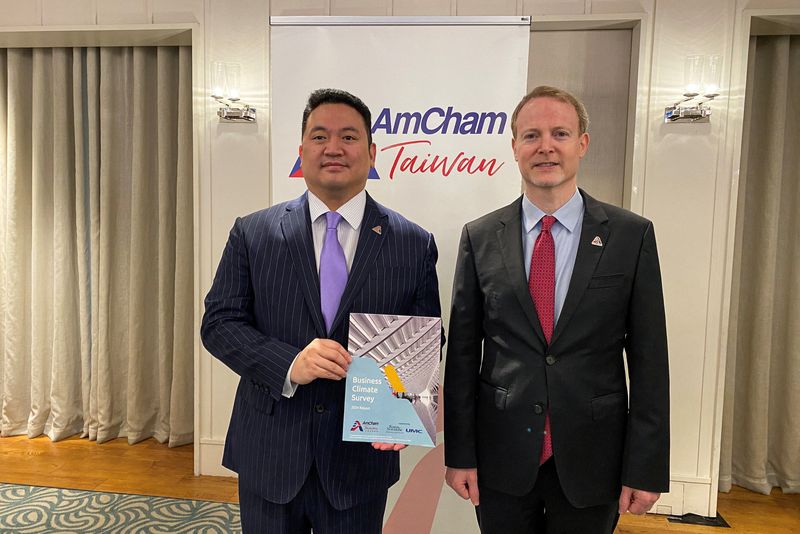TAIPEI (Reuters) - Almost half of companies surveyed by the American Chamber of Commerce (AmCham) in Taiwan consider geopolitical concerns a deterrence to expanding or investing in the island but that number has significantly dropped even as China tensions remain.
China, which views democratically governed Taiwan as its own territory despite the objections of the Taipei government, has been stepping up military and political pressure to assert those sovereignty claims.
Lai Ching-te of the ruling Democratic Progressive Party (DPP), who China views as a dangerous separatist, won this month's presidential election and will take office on May 20, though his party lost its parliamentary majority.
In a survey released on Tuesday, which took place between Nov. 20 and Dec. 15, AmCham Taiwan said 46% of respondents considered "geopolitical uncertainty" the top factor deterring them from expanding or investing in Taiwan.
While that was down 20 percentage points from the previous survey, it was still higher than other factors like bureaucracy and a shortage of skilled labour.
"So while they see geopolitics as a risk, it is not so much of a deterrence," AmCham Taiwan Chairperson Dan Silver told reporters.
More than half of respondents said relations with China should be a priority for Taiwan's government in the next three years.
"Although our members don't express high levels of concern about action from China, businesses do need a stable and peaceful environment to prosper," added AmCham Taiwan President Patrick Lin.
AmCham Taiwan, which said that 223 of its 444 eligible members responded to the survey, said 92% planned to maintain or increase investment in the island this year, noting confidence in Taiwan is "flying high".

The group has called for an ambitious agenda to accelerate economic cooperation with Taiwan through a new Taiwan-U.S. trade talks framework - and eventually a bilateral trade agreement, which Taiwan's government has also pushed for.
Silver said he thought the prospects for such a deal were "modest" but that Taiwan needed to "seek with urgency and respond with urgency to outreach from the United States to move towards new agreements".